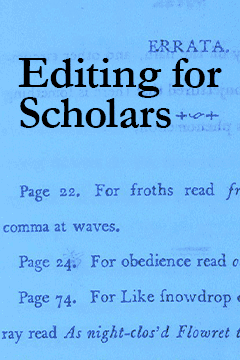Australian Corporate Skulduggery in Malaysia?
Australian Corporate Skulduggery in Malaysia?
Tim LaRocco: Australian Corporate Skulduggery in Malaysia?
September was supposed to mark the beginning of operations at a rare earth metals processing facility in Kuantan, Malaysia, a fast-growing port city on the South China Sea. The project, awarded to the Australian-based Lynas Corporation, was originally envisaged as a lofty effort at breaking the Chinese monopoly on the production of rare earths. Expectations grew after it was reported that the Kuantan plant, upon completion, would become the largest rare earth mining center in the world. Malaysia, offering business-friendly tax incentives and large swaths of purchasable land, seemed to be an ideal place to base the project. But the plant opening is now uncertain because of a grassroots campaign spearheaded by the local population of Kuantan over the ecological and environmental consequences of the project. Moreover, engineers have raised concerns during construction about the structural integrity of the plant.
Rare earth metals are essential for many technological devices. As the Wall Street Journal reported in July,
The 17 elements are favored for a host of niche applications because of their unusual characteristics. Magnets made with the rare-earth minerals neodymium and praseodymium are uniquely strong, making them valuable components in wind turbines and computer hard drives. Rare-earth phosphors such as europium and yttrium are in demand to tweak the color of compact fluorescent light bulbs and LED displays.
These elements can be found in abundant quantities all over the globe, and can be refined in any country. However, the byproducts of the mining and refining processes are often toxic. The refining of rare earth materials mined from monazite sands, for instance, produces thorium (thorium-232), a radioactive chemical element that?s used in the production of nuclear energy. These dangers have turned the Kuantan project into a cause for environmental activists, protesters, and the locals who are on the front lines of this conflict.
An organization called Save Malaysia, Stop Lynas is at the forefront of the effort to prevent the opening of the plant. Utilizing blogs and social media, the group has achieved some notoriety in the Malaysian press and blogosphere. It was even able to secure a meeting with Lynas CEO Nick Curtis, the details of which have not been released. Such grassroots, indigenous efforts to put pressure on globalized companies have had moderate success in the past, such as the Cochabamba protests in Bolivia against water giant Bechtel in the early 2000s. National governments, the international community, and multinational corporations should never underestimate the will of local groups to protect the resources on their land.
Some laud the project, however, for opening up the global rare earth market. Ninety percent of the world?s rare earth mining is done is China, where environmental regulation is virtually nonexistent. Beijing?s control over the supply of rare earth metals is akin to OPEC?s over the oil market; it can unilaterally affect prices by cutting export quotas and raising taxes on importers. From July 2010 to February 2011, the price of rare earth metals increased nine fold. Moreover, the International Atomic Energy Agency (IAEA) has reviewed the plant?at Putrajaya?s request?and, beyond making a few recommendations for improvements, has concluded that it meets international inspection standards.
There?s another reason that some favor the rare earths: They are essential in the production of green technologies. Everything from hybrid cars to wind turbines to smart light bulbs requires them. The actors involved in the rare earth drama have to confront this dilemma. Do the amount of radioactive waste and the dangerous levels of byproduct pollution outweigh the industrial and technological benefits?
Conventional wisdom suggests that multinational corporations, seeing huge potential profits and bringing with them much-needed foreign direct investment, usually end up getting what they want, against the wishes of locals or not. But in the case of rare earths, the risks involved have motivated opponents. The Malaysian government will need to consider whether a little more investment capital from a multinational is worth those potential costs?if the land is irreversibly degraded, if water is made unfit for human or livestock consumption, and if crops can no longer grow.




